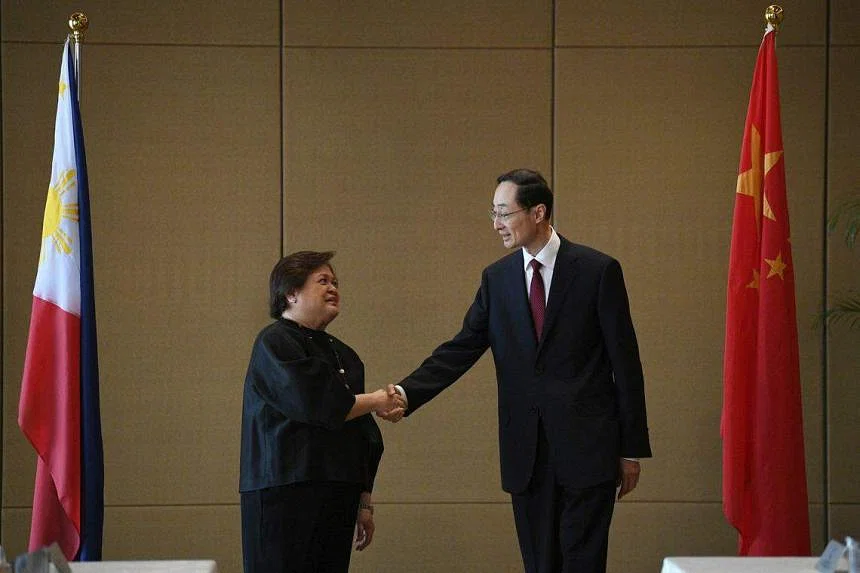MANILA – A senior diplomat from the Philippines has told China that it must not resort to “coercion and intimidation” in addressing their maritime dispute in the South China Sea.
Philippine Foreign Undersecretary Maria Theresa Lazaro said this at the start of the 7th Bilateral Consultation Mechanism (BCM) on the disputed waters on Friday.
China is represented by Vice-Foreign Minister Sun Weidong, who is ending his three-day visit to Manila on the same day.
The BCM, which was established in 2017, provides for the Philippines and China to directly manage and address with one another issues on the South China Sea.
The previous BCM was held virtually in May 2021 amid the Covid-19 pandemic.
In her opening statement on Friday, Ms Lazaro recalled that Chinese President Xi Jinping and Philippine President Ferdinand Marcos Jr had agreed to find a peaceful resolution to the maritime dispute during the latter’s state visit to Beijing in January.
“The Philippines and China are in agreement that maritime issues do not comprise the totality of bilateral relations between our two countries. However, maritime issues remain a serious concern for the Filipino people,” Ms Lazaro said.
“Additionally, both our countries’ leaders agreed that maritime issues should be addressed through diplomacy and dialogue and never through coercion and intimidation. The meeting today is an attempt to follow through on that decision,” she added.
China has been increasing its activities in the South China Sea as Mr Marcos explores deeper security cooperation with its military allies – the United States, Japan and Australia – to counter Beijing’s growing influence in the Indo-Pacific.
In February, a China Coast Guard vessel aimed a military-grade laser at a Philippine Coast Guard vessel near the Second Thomas Shoal in the disputed Spratly Islands, temporarily blinding some of its crew.
This pushed the Philippines to beef up its coast guard’s presence in the disputed waters, where scores of suspected Chinese militia vessels remain near Thitu Island, also part of the Spratlys.
Mr Sun did not directly address these specific instances in his speech, but insisted that China and the Philippines have “generally managed and effectively dealt” with their differences in the maritime dispute through “friendly dialogue and consultations”.
He reiterated that the South China Sea territorial dispute does not form the entirety of China-Philippines relations.
“We should not allow specific differences to define our bilateral relations or allow certain disputes to stand in the way of overall cooperation. We need to properly deal with these issues through friendly consultations,” said Mr Sun.
The Philippines is among the claimant states challenging Beijing’s claim over parts of the South China Sea.
In 2016, Manila won a historic arbitral case that rejected China’s claim and ruled that the eastern part of the disputed waters, which Filipinos call the West Philippine Sea, belongs to the Philippines.
China has refused to recognise this ruling and has increased its military presence and artificial island-building activities in the South China Sea.
The Philippines is now in talks with the US, Japan and Australia to potentially hold joint patrols in the disputed waterway.
Source: straitstimes


